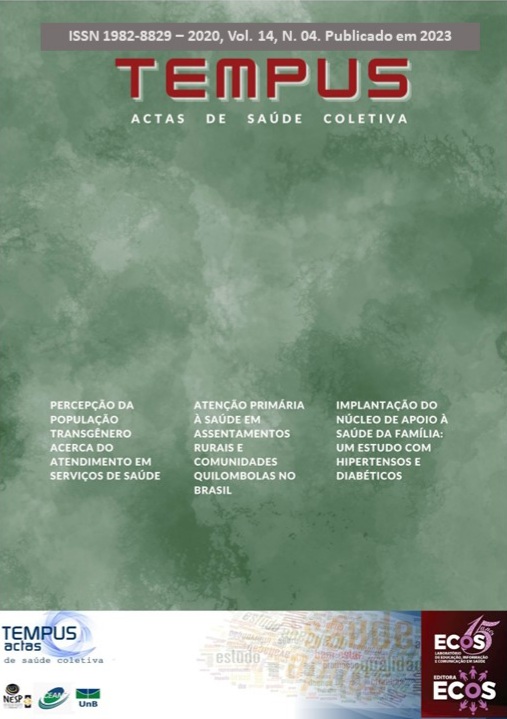Abstract
In view of the need for distance and social isolation assumed as important coping measures for the prevention and control of COVID-19, the use of telemedicine was timely and incorporated as a device for health care worldwide. We aim to present the experience of the call center of patients with flu syndrome during the COVID-19 pandemic, in view of the need to develop strategies for health care. This is a descriptive study, of the type of experience report, elaborated based on the performance of the medical professional of a municipality in the northeast of Brazil in the call center service of patients with flu syndrome. From the analysis of the data produced in reflective field diaries, we elaborated three units of meaning, namely: Feelings, emotions and expectations made possible by the COVID-19 pandemic; Analysis of the organization and functioning of the call center service for patients with flu syndrome; and, Attitudes and doubts of the population in the face of living with COVID-19 and availability of the service. From the implementation of this service, we understand the movement of the population in the face of the COVID-19 pandemic. In addition to the perception of understanding the coping measures disseminated throughout the pandemic, it was possible to observe the reactions, feelings and emotions of the population, as well as to identify the main needs and demands for care. The call center service contributed to the organization and functioning of networked health services, assuming an educational and diagnostic support function, in addition to being a complementary articulation and integration device, especially with primary care.
A Tempus garante critérios rigorosos, por meio de avaliação sistemática. Os autores se responsabilizam pela veracidade e ineditismo do trabalho cabendo a eles a cessão de direitos de publicação à revista. A confiabilidade dos conteúdos e a marca própria de apresentação tem como objetivo uma comunicação personalizada, adaptada aos padrões da revista, na medida em que adota critérios de excelência exigidos por seus usuários e especialistas, considerando os rigores da comunicação científica. Os autores devem especificar sua contribuição individual na concepção, delineamento, execução do trabalho, análise ou interpretação dos dados, redação e aprovação final do manuscrito. Incluir Fontes de financiamento e de apoio logístico das pesquisas. Ao final da submissão do artigo, os autores devem enviar uma declaração de cessão de direitos de publicação à Revista TEMPUS , assinada e no formato PDF (Portable Document Format ): Modelo da declaração de cessão de direitos.
